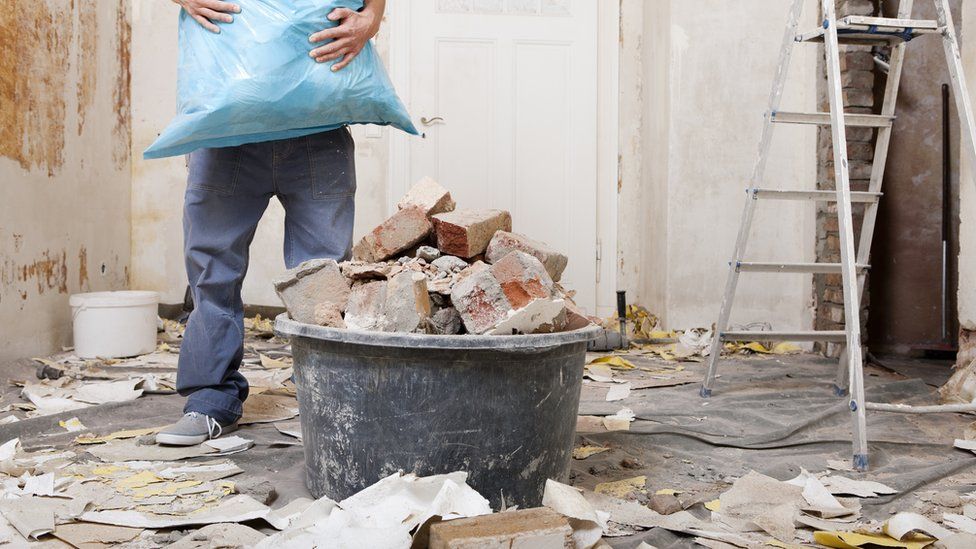ARTICLE AD BOX
 Image source, Getty Images
Image source, Getty Images
By Becky Morton
Political reporter
A ban on fees to get rid of DIY waste in England will push up costs for all households, councils have warned.
Before the ban, which came into force on Sunday, around a third of local authorities charged to dispose of DIY waste at recycling centres.
The government said it wanted to deter fly-tipping.
But the Local Government Association (LGA) said the costs would still be passed on, for example through higher council tax.
The organisation, which represents councils in England, said the change would cost many councils more than £1m a year.
Suffolk County Council said scrapping the charges would cost an estimated £500,000 a year, while Norfolk County Council said the cost would be more than £1m a year.
Charges to dispose of materials like paving slabs, plasterboard and bricks can be up to £10 an item.
The LGA's environment spokesman, Darren Rodwell, said: "Where councils are no longer able to charge for DIY waste at recycling centres the cost will be passed to all householders, including households that do not have a car and those with no possibility of carrying out building works, for example people living in rented accommodation."
He added: "Manufacturers should also contribute to the costs to councils of clear up, by providing more take-back services so people can hand in sofas, old furniture and mattresses when they buy new ones."
The government said the change was part of its wider action to tackle fly-tipping, which costs the economy an estimated £924m a year in England.
However, Mr Rodwell said evidence from councils and recycling campaign group Wrap did not show a link between charges and fly-tipping.
Environment Minister Rebecca Pow said: "We want to make it as easy as possible for people to dispose of their waste properly and that's why we are removing the financial burden on doing the right thing with DIY trash."
Jacob Hayler, executive director of the Environmental Services Association, which represents the waste management industry, said: "We welcome any measures that make it easier for householders to dispose of waste correctly and responsibly at their local Household Waste Recycling Centre, which in turn reduces the chance of it falling into the hands of criminals or being fly-tipped."
In 2015, the government banned charges on local residents disposing of household rubbish at household waste centres.
Guidance made clear this includes DIY household waste. But some local authorities were still able to charge for certain types of DIY material, under rules designed for construction waste.

 1 year ago
42
1 year ago
42








 English (US) ·
English (US) ·